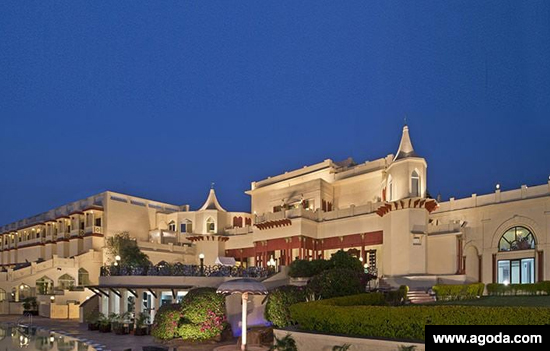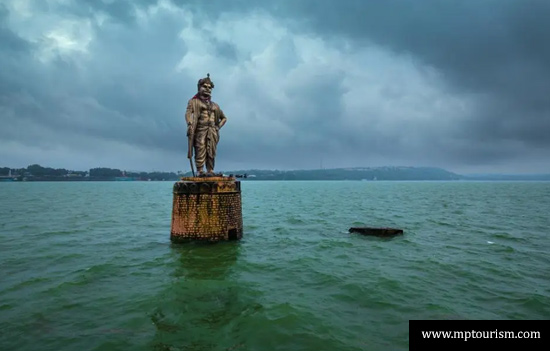- Know origin of Bhopal rulers, accession
of Bhopal State, who (including Saif) inherits property, why Enemy Property Act
was passed & explore Waqf angle.
Even since the unfortunate attack on actor Saif, he is in the news. Numerous 22/1/25 reports on Rs 15,000 crs worth Saif’s family property in Bhopal that got me interested to compile this.
Article presented in point form in four
parts i.e. Summary, Property Twist, Enemy Property Act and Waqf angle.
Know about Bhopal Nawabs, State’s accession to India, how Saif father Mansur Ali of Haryana came to inherit property in Bhopal and related issues.
1. Summary
1. “The State of Bhopal was established by Dost Mohammed Khan, an Afghan soldier, in 1724. He rose to prominence by taking advantage of disintegration of the Mughal Empire. He established capital 10 km away from modern Bhopal, at Jagdishpur. He named it Islamnagar.” Source Raj Bhawan, MP
2.
According to Wikipedia, “On 5/9/1925 at Peshawar, Nawab Hamidullah Khan (HKhan) married Maimoona Sultan Shah Banu Begum Sahiba (1900–1982), the great-great-granddaughter of Padshah Shuja Shah Durrani of Afghanistan. They had 3 daughters: Sajida Sultan, Abida, Razia Sultan.
3. HKhan assumed Bhopal throne in 1926,
became Nawab.
4. According to the University of Southampton archives he asked the Viceroy for time
beyond 15/8/1947 to sign the IOA because he wished to see what stand Kashmir
and Hyderabad would take. (to see letter
dated 10/8/1947) Simply put, if they went to Pakistan
so would he. But Sardar Patel negated his plans.
Note that Governor General of India
Mountbatten signed the IOA with Maharaja Hari Singh of Jammu and Kashmir on
27/10/1947.
5. According to a book by Bhopal History
Forum he signed the Instrument of Accession (IOA) on
14/8/1947, countersigned by Viceroy Mountbatten. However, the Nawab requested
the Viceroy not to make this public.
Was
the Viceroy authorised to sign the Instrument of Accession?
6. “The agreement for merger was signed by the Ruler HKhan on 30/4/1949. The State was taken over by the Union Government through a Chief Commissioner on June 1, 1949. Thus, Bhopal State was formed as a part ‘C’ State of Indian Union.” Source
Former British Provinces were A category, former Princely States were B and
former Chief Commissioner Provinces C.
7. HKhan died in 1960.
8. Of HKhan 3 daughters, “the eldest Abida Sultan, moved to Pakistan in 1950, and renounced Indian citizenship. The second daughter, Sajida Sultan, stayed in India, becoming the heir.” Source The Week
9. “On January 13, 1961, the Press Information Bureau released a statement saying Sajida Sultan had been recognised as the “Ruler of Bhopal with effect from February 4, 1960.” Source
Scroll.in
10.
Sajida ji son was cricketer Mansur Pataudi, wife Sharmila Tagore (Ayesha). Source Times of India Note
that Pataudi is a small town in modern day Haryana.
11. On Sajida ji death in 1965 cricketer Mansuri Ali became heir to the Bhopal Estate for 50%, his two sisters Salehi and Sabia at 25% each. Under Muslim Personal Law share of every son’s inheritance is double that of every daughter Source
Scroll.in
12.
Mansur Sir passed away in 2011. I assume that post his death in 2011 wife
Ayesha (Sharmila ji) became heir. Can someone confirm?
Since all are Muslims inheritance laws
shall be as per Muslim
Personal Law. It varies between Sunnis and Shias.
Wish some learned can throw light. Read Inheritance Laws for Muslim/Hindu Women
13. Their children are actor Saif and sisters Saba Ali and Soha Ali. Using same logic as stated above, Saif inherits 50% of his father’s 50% share.
It is not known if this
inheritance is conditional on marrying a Muslim or one who converts. While Sharmila
ji conversion is known, one does not know if Kareena had converted. This
report says no Saif sister Soha ji has married a Hindu, not known if she remains
a Muslim. Will her status change inheritance?
14. Aside, eldest daughter of HKhan, Abida Sultan, who
migrated to Pakistan in 1950 was the mother of Shahryar Khan, who was that country’s Foreign Secretary from 1990-94.
In 1971 former PM Mrs
Indira Gandhi did away with Privy Purses to Princely States and related
benefits.
2. Now
the Property Twist
1. According to Indiankanoon.org, “With regard to succession to the throne of Bhopal State it was agreed that the same would be governed and regulated in accordance with the provisions of the Act known as the Succession to the Throne of Bhopal Act 1947.”
So a reading of the Throne of Bhopal Act 1947 and agreements during India merger are important.
2. The Enemy Property Act was passed in 1968. But what is it? “The Enemy Property Act, 1968, stipulates that properties owned by people who took citizenship in Pakistan can be considered as enemy property that can be seized by the government. The law was passed following the India-Pakistan War of 1965.” Source
The Week
Note that the concept of Enemy Property does not imply that those who stayed back in India are enemies of India in 2025. It was passed post India’s second war with Pakistan in 1965.
Since then had the 1971 and 1998 Kargil conflict not to forget Pakistan making terrorism as an instrument of state policy. Read What stops me from loving Pakistan
“Under the Defence of India Rules, formulated under the Defence of India Act, 1962, these properties were vested with the Custodian of Enemy Property for India. The custodian is tasked with managing these assets on behalf of the Indian government.” Source
Indian Express
3. I assume that since the eldest daughter of HKhan migrated to Pakistan
all property inherited by his second daughter being resident Indian was
declared Enemy Property.
 Noor-Us-Sabah Palace, Bhopal now a hotel.
Noor-Us-Sabah Palace, Bhopal now a hotel.
4. Which are the properties of the Bhopal Nawab’s estate? “These include the Noor-Us-Sabah Palace, Bungalow of Habibi, Ahmedabad Palace, Dar-Us-Salam, Kohefiz Property and the Flag Staff House.” Source The list of Nawab’s personal properties are an annexure to 30/4/1949 the agreement. Source Also, 5,796
acres of prime land in Bhopal and 1,370 acres of land outside of Bhopal. Source ThePrint
Now coming to Court matters-
5. “In 2014, the Office of the Custodian of Enemy Property for India in Mumbai issued a notice declaring the Pataudi family’s properties in Bhopal as “enemy property.” Source New Indian Express
6. “Sharmila ji challenged the 2014 notice in the Madhya Pradesh High Court’s principal bench in Jabalpur in 2015 and obtained a stay.” Source
From indiakanoon.org
link that has the December 2024 court
order know that writ petition 4980 was Saif Ali Khan vs. Union of India &
Others, writ petition 6070 of 2015 was Sharmila Tagore and Others vs. Union of
India & Others, writ petition 10337 of 2015 was Sabiha Sultan vs. Union of
India & Others.
7. “In 2016, an ordinance by the central government clarified that heirs would have no rights over the concerned enemy properties.” Source New Indian Express
8. “In 2017, the Enemy Property (Amendment and Validation) Bill was passed, preventing descendants of individuals who migrated to Pakistan or China during Partition from reclaiming properties left behind in India.” Source & Here
9. “A single-judge bench of MP High Court in Jabalpur disposed of the petition filed by Sharmila ji in 2015 against the 2014 government notice declaring the Pataudi family’s property in Bhopal as ‘enemy property.’ Furthermore, in its order on December 13, 2024, the HC granted the Pataudi family 30 days to approach the appellate authority to reclaim the property.” Source New Indian Express
The final court decision on whether the Nawab of Bhopal’s estate is Enemy Property shall affect Nawab’s heirs and those who bought property from heirs.
3. What is Enemy Property Act?
This Act was passed in 1968 after India’s 1965 War with Pakistan. To read
“Enemy Property (Amendment and Validation) Act, 2017, which amends the Enemy Property Act (it prevents the successors of those who migrated to Pakistan and China during Partition from claiming properties left behind in India).” Source Indian Kanoon.org
“The Enemy Property (Amendment and Validation) Act, 2017, reinforced the law and expanded its scope. The amendments broadened the definition of “enemy subject” and “enemy firm” to include legal heirs and successors, irrespective of their citizenship, whether Indian or from a non-enemy nation. The amendments effectively nullified inheritance claims, ensuring that such properties remained indefinitely under the control of the government.” Source
Indian Express
The 2017 Act amendments include – Amendment to Section 2 (i) in clause (b)
“for the words "an enemy subject", the words "an enemy subject including his legal heir and successor whether or not a citizen of India or the citizen of a country which is not an enemy or the enemy, enemy subject or his legal heir and successor who has changed his nationality" shall be substituted and shall always be deemed to have been substituted.”
The key words are legal heir and successor. Successor might include Saif and family. This means that those families where one or more members of the family migrated to Pakistan leaving the rest and property behind might be treated as ‘enemy property’.
“On January 2, 2018, then Minister of State for Home Hansraj Ahir told Lok Sabha that a total 9,280 enemy properties had been left behind by Pakistani nationals, and 126 by Chinese nationals.” Source
Indian Express
 Raja Bhoj.
Raja Bhoj.
4. Advocate
D K Dubey made some interesting points in this video.
(20 minutes)
There are cases where in
a family of say 4 brothers one stayed back in India, three migrated. This way brothers retained ownership
of the ancestral property. Some property was made part of Waqf, facilitated by Waqf
Act 1954 says Adv Dubey. Read about Waqf below.
Note HC order dated
13/12/24 gave the Pataudi family 30 days to
approach the appellate authority to reclaim the property Appeal. Attack
on Saif on January 16. Are these connected asks Adv Dubey? You decide.
If the matter reaches the Supreme Court hope it is given
priority and seen through Bharat vs. Enemy Pakistan/China prism. We must accept that India was divided on the basis of
religion.
Hope the matter is
taken to a logical conclusion and not closed as part of some deal between
parties involved.
Sale proceeds of enemy
properties can be used to make hospitals and schools.
4A. What
is WAQF?
According to the Madhya Pradesh Waqf
Board site, “Waqf is a Voluntary, permanent, irrevocable dedication of a portion of one’s wealth-in cash or kind- to Allah. Once a waqf, it never gets gifted, inherited, or sold. It belongs to Allah and the corpus of the waqf always remains intact. The fruits of the waqf may be utilised for any shari’ah compliant purpose.
Section 3 (s) states, “Waqf deed” means any deed or instrument by which a Waqf has been created and includes any valid subsequent deed or instrument by which any of the terms of the original dedication have been varied.”
According to section 14, members of the Waqf Board must be Muslims.
Legal experts state that land and heritage structures owned by Muslim Rulers before Independence can become Waqf property? Can the GOI
ascertain how much of enemy property is now Waqf property?
Wish Saif bhaiya speedy
recovery.
Utmost care was taken
in presenting information. Errors if any are unintentional and not meant to
malign or defame any community or person living or dead.
Also read
1. Why
has democracy failed in Pakistan
2. All
you wanted to know about Waqf - FAQ
3. What stops me from loving Pakistan